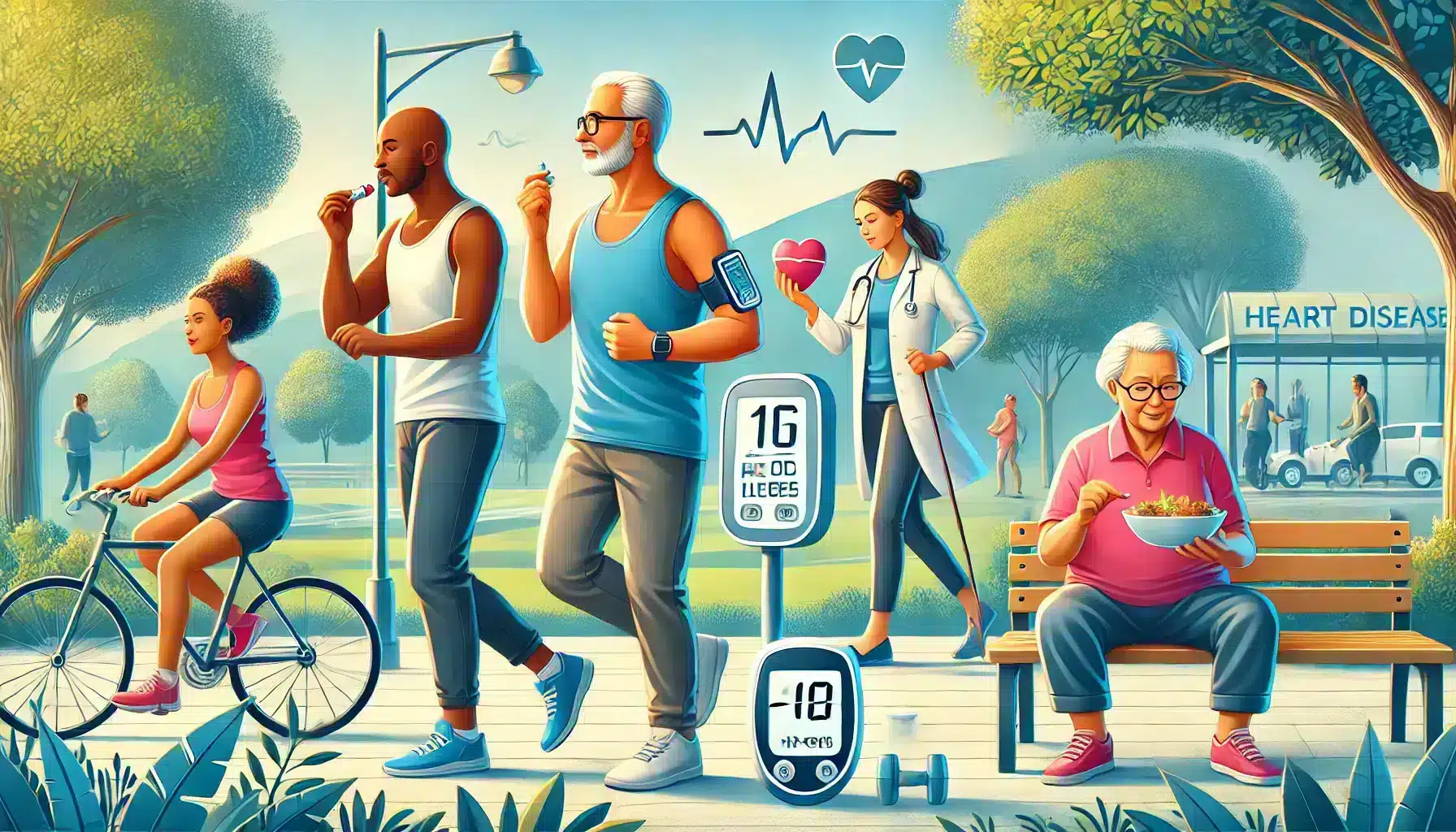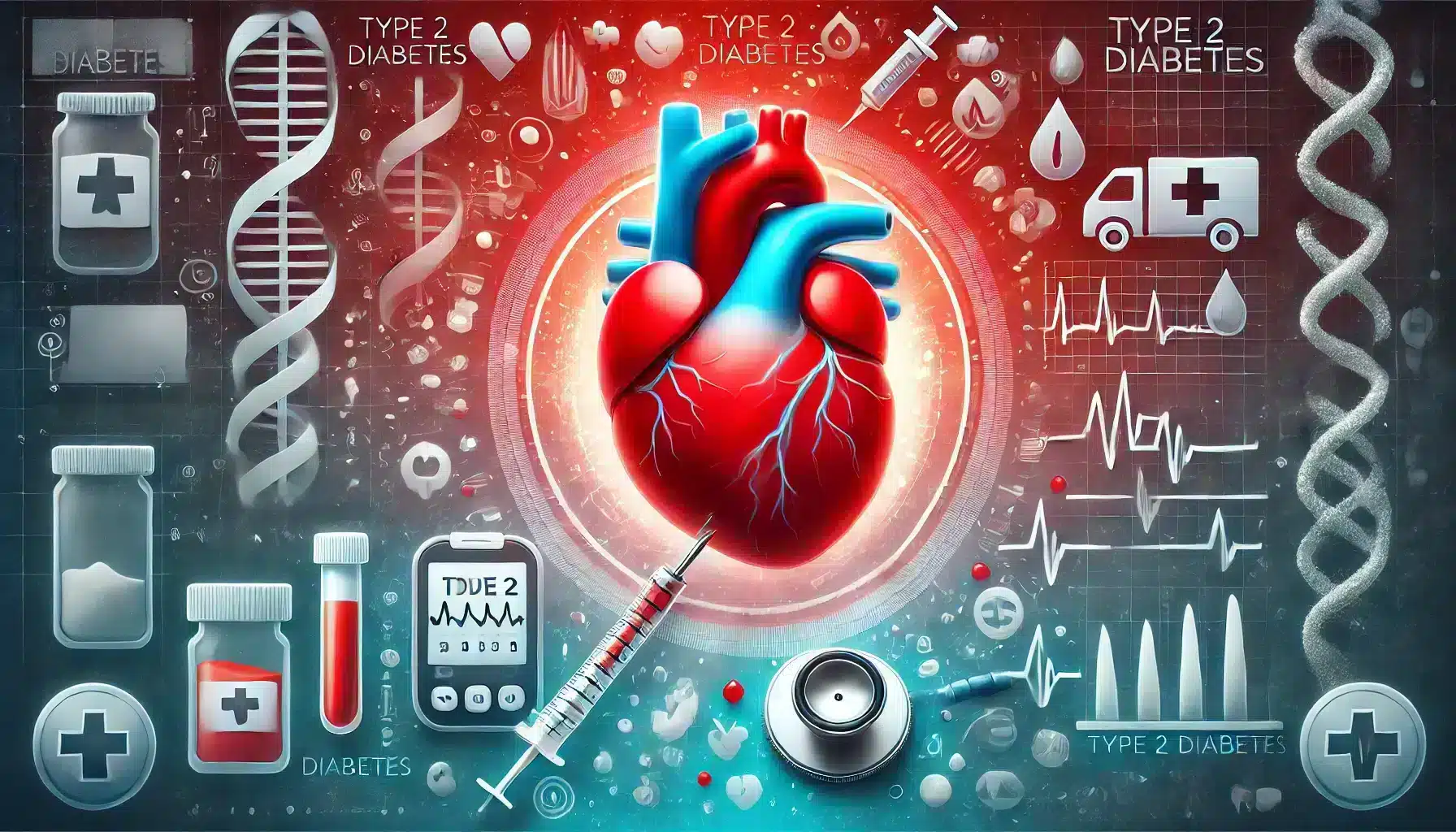Understanding the Link Between Diabetes and Heart Disease
Diabetes and heart disease are closely connected, and individuals with diabetes are at a higher risk of developing heart-related complications. This is primarily due to high blood glucose levels, which can damage blood vessels and nerves controlling the heart. Over time, this damage can lead to conditions such as coronary artery disease, heart attacks, and strokes. Understanding the mechanisms behind this link is crucial for effective prevention.
People with diabetes often have other risk factors that contribute to heart disease, including high blood pressure, high cholesterol levels, and obesity. Insulin resistance, a common characteristic of type 2 diabetes, also plays a significant role in increasing cardiovascular risk. By recognizing these connections, we can better target preventive measures to reduce the incidence of heart disease among those living with diabetes.
Risk Factors You Should Be Aware Of
Understanding the risk factors that contribute to heart disease is essential for individuals with diabetes. Some of the primary risk factors include:
- High Blood Pressure: Hypertension can damage arteries, making them more susceptible to plaque buildup and narrowing, which increases the risk of heart disease and stroke.
- High LDL Cholesterol and Triglycerides: Elevated levels of bad cholesterol and triglycerides are common in people with diabetes, further contributing to artery blockage and heart complications.
- Obesity: Excess body weight, particularly around the abdomen, is a significant risk factor for heart disease, as it contributes to insulin resistance and inflammation.
- Smoking: Smoking significantly increases the risk of heart disease, especially in individuals with diabetes, as it damages blood vessels and accelerates the buildup of fatty deposits in the arteries.
- Family History of Heart Disease: A family history of heart disease can increase your risk, making it important to take preventive actions if you have diabetes.
Identifying and managing these risk factors through lifestyle changes and medical interventions can significantly lower your risk of heart disease. By taking proactive steps, you can protect your heart health and improve your overall quality of life.
Lifestyle Changes to Prevent Heart Disease
Making lifestyle changes is one of the most effective ways to prevent heart disease if you have diabetes. By adopting healthier habits, you can reduce your risk factors and improve your overall heart health. Below are key lifestyle modifications that can make a significant impact:
1. Healthy Eating Habits
Diet plays a critical role in managing both diabetes and heart disease risk. Focus on a balanced diet that includes plenty of vegetables, fruits, whole grains, and lean proteins. Limit the intake of processed foods, saturated fats, trans fats, and added sugars, which can contribute to high cholesterol and blood sugar levels.
- Choose high-fiber foods like oats, beans, and leafy greens to help regulate blood sugar and cholesterol.
- Incorporate healthy fats, such as those from olive oil, nuts, and avocados, which can help improve cholesterol levels.
- Practice portion control and mindful eating to manage weight and prevent overeating.
2. Regular Physical Activity
Regular exercise is essential for heart health, weight management, and blood sugar control. Aim for at least 150 minutes of moderate-intensity exercise per week, such as brisk walking, swimming, or cycling. Exercise helps improve circulation, reduce blood pressure, and increase insulin sensitivity.
- Start with activities you enjoy to maintain consistency and make exercise a part of your routine.
- Include strength training exercises at least twice a week to build muscle mass and boost metabolism.
- Always consult with your healthcare provider before starting a new exercise regimen, especially if you have any underlying health conditions.
3. Blood Sugar Management
Keeping your blood sugar levels within the target range is crucial for preventing heart disease. Regular monitoring, medication adherence, and lifestyle adjustments are key components of effective blood sugar management.
- Work closely with your healthcare team to develop a personalized diabetes management plan.
- Track your blood sugar levels regularly and adjust your diet, activity, or medications as needed.
- Be aware of symptoms of high or low blood sugar and know how to respond appropriately.
4. Maintaining a Healthy Weight
Achieving and maintaining a healthy weight is crucial for reducing the risk of heart disease in individuals with diabetes. Excess weight, particularly abdominal fat, increases the risk of insulin resistance, high blood pressure, and unhealthy cholesterol levels. By focusing on weight management, you can significantly lower your cardiovascular risks.
- Set realistic weight loss goals, such as losing 5-10% of your body weight, which can have a substantial impact on your health.
- Combine a healthy diet with regular physical activity to create a sustainable weight loss plan.
- Seek support from healthcare professionals, such as dietitians or fitness trainers, who can guide you in your weight management journey.
5. Smoking Cessation and Alcohol Moderation
Smoking is a major risk factor for heart disease, and quitting can greatly improve your heart health. If you smoke, seek resources to help you quit, such as counseling, support groups, or medications. Additionally, moderating alcohol intake can help manage blood pressure and reduce calorie intake, which is beneficial for heart health.
- Aim to quit smoking completely; even reducing the number of cigarettes can have positive effects.
- Limit alcohol consumption to moderate levels — up to one drink per day for women and two drinks per day for men.
- Replace smoking and drinking habits with healthier alternatives, like taking a walk or practicing relaxation techniques.
Importance of Regular Health Check-ups
Regular health check-ups are essential for early detection and management of heart disease risk factors in individuals with diabetes. By keeping up with routine medical appointments, you can monitor your heart health, adjust treatments as needed, and take proactive steps to prevent complications.
- Blood Pressure Monitoring: Regularly checking your blood pressure helps identify hypertension early, allowing for timely intervention to protect your heart.
- Cholesterol and Lipid Panels: Regular testing of your cholesterol levels can help you and your healthcare provider assess your risk for heart disease and adjust your treatment plan accordingly.
- HbA1c Testing: Monitoring your HbA1c levels provides insight into your long-term blood sugar control, which is crucial for preventing diabetes-related heart issues.
In addition to these tests, your healthcare provider may recommend other screenings, such as stress tests or electrocardiograms, depending on your individual risk factors. Staying vigilant with regular check-ups ensures that any potential issues are caught early, giving you the best chance to manage your heart health effectively.
Medications and Treatments
Medications play a significant role in preventing heart disease in people with diabetes. Depending on your specific risk factors, your healthcare provider may prescribe various medications to help manage your blood pressure, cholesterol, or blood sugar levels. Here are some common medications used for heart disease prevention:
Common Medications for Heart Disease Prevention
Several types of medications can help reduce the risk of heart disease in individuals with diabetes:
- Statins: These medications lower LDL cholesterol levels, reducing the risk of heart attacks and strokes.
- Blood Pressure Medications: ACE inhibitors, beta-blockers, and diuretics are commonly prescribed to control high blood pressure, which is a major risk factor for heart disease.
- Aspirin: Low-dose aspirin therapy may be recommended for some individuals to reduce the risk of blood clots, which can lead to heart attacks.
Understanding the Role of Insulin
For people with diabetes, managing insulin levels is crucial for overall health and heart disease prevention. Insulin therapy helps keep blood sugar levels within a normal range, reducing the damage to blood vessels and nerves that can lead to heart disease. Understanding how to effectively use insulin, whether through injections or a pump, can significantly impact your heart health.
- Work with your healthcare provider to adjust your insulin regimen based on your blood sugar patterns and lifestyle.
- Regularly monitor your blood sugar levels to ensure your insulin therapy is effective in managing your diabetes.
- Educate yourself on the signs of hypo- and hyperglycemia to respond promptly and prevent complications.
Managing Stress for Heart Health
Stress management is a critical, yet often overlooked, aspect of preventing heart disease, especially for individuals with diabetes. Chronic stress can negatively impact your blood sugar levels and heart health, increasing the risk of heart disease. Implementing stress-reducing techniques can help you maintain better overall health.
- Mindfulness and Meditation: Practicing mindfulness or meditation can help reduce stress and lower blood pressure, contributing to heart health.
- Physical Activity: Regular exercise not only benefits your physical health but also acts as a powerful stress reliever, improving your mood and reducing anxiety.
- Healthy Sleep Habits: Poor sleep can exacerbate stress and negatively affect your heart. Aim for 7-8 hours of quality sleep each night to help your body recover and manage stress better.
Other effective stress management techniques include deep breathing exercises, engaging in hobbies, and spending time with loved ones. By prioritizing stress management, you can positively influence your heart health and overall well-being.
FAQs: Common Questions About Diabetes and Heart Disease Prevention
1. How does diabetes increase the risk of heart disease?
Diabetes can lead to heart disease due to high blood glucose levels that damage blood vessels and nerves controlling the heart. Additionally, individuals with diabetes often have other risk factors such as high blood pressure, high cholesterol, and obesity, which further increase their risk.
2. What are the best foods to eat for heart health if I have diabetes?
Focus on a balanced diet that includes whole grains, fruits, vegetables, lean proteins, and healthy fats. Avoid processed foods, added sugars, and unhealthy fats. Foods high in fiber, such as oats and legumes, can help manage blood sugar and cholesterol levels.
3. Can exercise help prevent heart disease in people with diabetes?
Yes, regular physical activity helps improve heart health by lowering blood pressure, reducing cholesterol levels, managing weight, and increasing insulin sensitivity. Aim for at least 150 minutes of moderate-intensity exercise per week.
4. What medications can help prevent heart disease if I have diabetes?
Medications such as statins, blood pressure medications, and low-dose aspirin can help manage heart disease risk factors. Your healthcare provider will recommend a personalized treatment plan based on your specific needs.
5. How often should I have health check-ups to monitor my heart health?
Regular check-ups are crucial for monitoring your heart health. You should have your blood pressure, cholesterol levels, and HbA1c tested regularly, as advised by your healthcare provider. More frequent visits may be necessary if you have higher risk factors.



